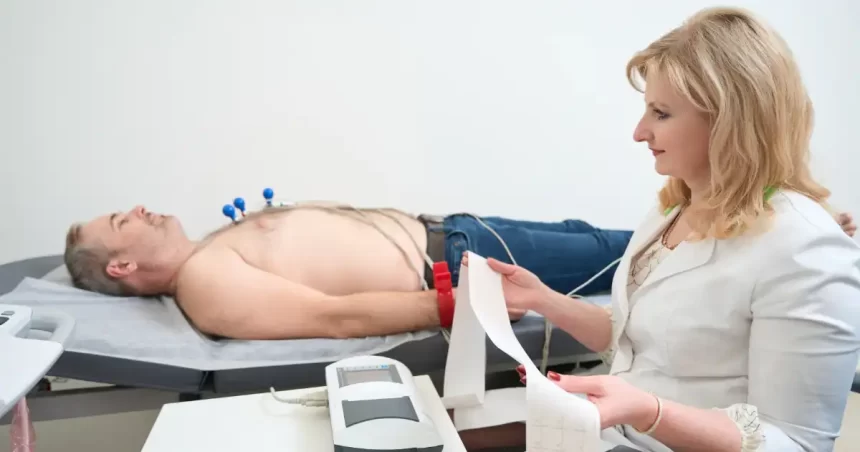Vascular studies are tests that help doctors check how well blood flows through your veins and arteries. They are simple, safe, and helpful for spotting problems before they become serious. These tests use advanced tools that let doctors see inside your blood vessels without surgery.
Your circulatory system is like a network of roads; your blood is the traffic. If there’s a blockage or slow movement, it can cause trouble in other parts of your body. Poor blood flow might not cause pain immediately, but can damage organs over time. Catching circulation problems early can help you avoid strokes, heart attacks, blood clots, and other dangerous health conditions.
What Are Vascular Studies?
Vascular studies use sound waves or tiny sensors to check how blood moves through your body. These tests do not hurt and do not use needles. Doctors often use them to find blockages or weak spots in your blood vessels. If blood is not flowing as it should, it may mean a narrowing or blockage somewhere.
Why You Might Need a Vascular Study
Doctors recommend vascular studies if:
- You have pain in your legs when walking
- You have cold feet or toes
- Your wounds take a long time to heal
- You have high blood pressure
- You have a family history of stroke or heart disease
These signs may mean your blood is not moving through your body correctly.
Types of Vascular Studies
1. Doppler Ultrasound
This test uses sound waves to see how blood flows in your veins and arteries. It helps spot clots or blockages.
2. Ankle-Brachial Index (ABI)
This test compares the blood pressure in your ankle to the blood pressure in your arm. A significant difference can be a sign of poor circulation.
3. Carotid Ultrasound
This test looks at the arteries in your neck. It checks for narrowing that could lead to a stroke.
4. Venous Duplex Scan
This test checks for blood clots in your legs. It is often used if your leg is swollen or sore.
How to Prepare for a Vascular Study
You usually do not need to do anything special before a vascular test. Sometimes, your doctor may ask you not to eat or drink for a few hours. Wear loose clothing and follow the instructions your doctor gives you.
What the Results Can Show
The results from a vascular study help your doctor see if your blood flow is normal. If something is wrong, your doctor might sometimes recommend medicine, lifestyle changes, or even surgery. Catching a problem early can make a big difference.
Benefits of Getting a Vascular Study
- Early detection of serious health problems
- Non-invasive and painlessV
- Fast and safe
- Helps you and your doctor make a plan
Conclusion: Keep Your Blood Flow Healthy
Vascular studies are an easy and important way to check how well blood moves through the body. When blood flows smoothly, your organs get the oxygen they need to stay healthy. These tests help doctors find issues early and treat them before they worsen. Finding problems like blocked or narrowed blood vessels early can lower your risk of stroke, heart attack, or serious complications.
By getting a vascular study, you take a big step toward protecting your health. It allows you and your doctor to act early and prevent future problems. If you notice any signs of poor blood flow, like numbness, cold limbs, or slow-healing wounds, bring it up. A simple test today could help protect your heart, brain, and overall health tomorrow.


Leave a Reply